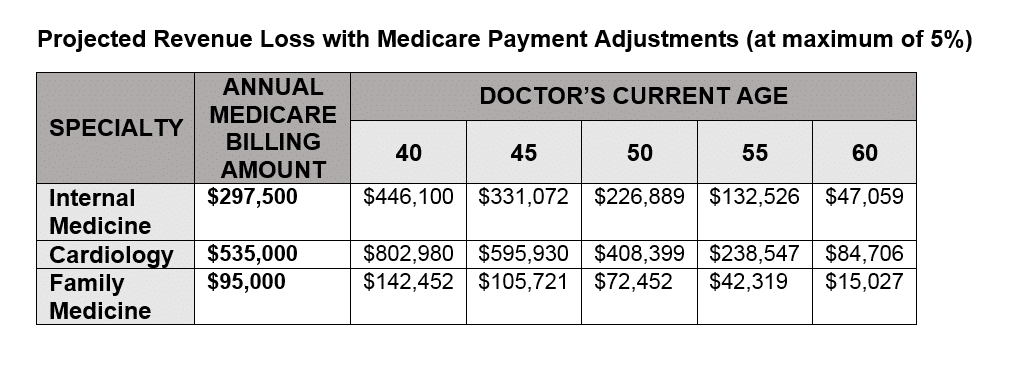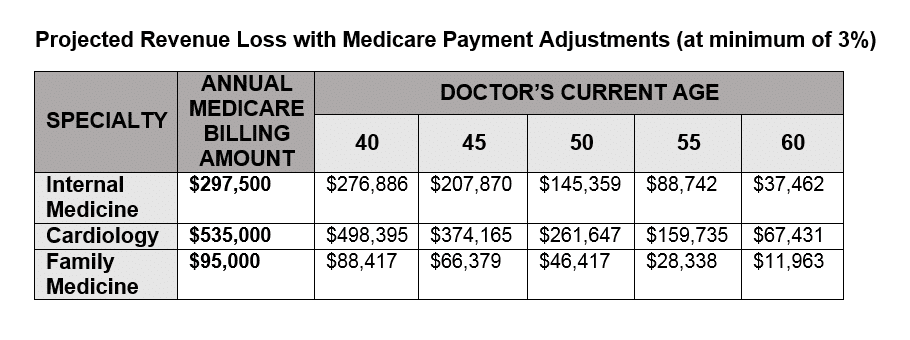Medicare Payment Adjustments will produce significant, long-term financial loss for physicians who do not participate in Meaningful Use
As part of the American Recovery and Reinvestment Act of 2009 (ARRA), Congress mandated payment adjustments be applied to Medicare eligible professionals who are NOT meaningful users. Beginning in 2015, if you do not successfully demonstrate meaningful use, your practice will be subject to a 1% payment reduction for all Medicare reimbursements. The reduction then increases by 1% each year that a physician does not demonstrate meaningful use, until it reaches the maximum reduction. This maximum reduction will be determined based on the total number of physicians who become meaningful users.If 75% or more of Medicare eligible professionals become meaningful users by 2018, the maximum penalty will be 3%. If less than 75% of providers are meaningful users, the maximum penalty will be 5%.
The Office for the National Coordinator for Health IT reported via Twitter recently that the percentage of eligible providers paid under Meaningful Use program overall is 76%. Other estimates have reported the overall percentage of Medicare providers registered for Meaningful Use as 57.8%.
It’s unclear exactly how CMS will measure the percentage. Will they count all eligible providers that participated in at least one year of the program or only those who have successfully attested in subsequent years as well?
To show just how high the financial stakes can be, we offer these examples below, which estimate the potential impact on doctors of various ages for three common specialties, at both a 5% and a 3% payment adjustment rate. [Click each chart below to view a larger image.]
 And the below estimates project revenue loss if payment adjustments stay at 3% (if over 75% of physicians are Meaningful Users):
And the below estimates project revenue loss if payment adjustments stay at 3% (if over 75% of physicians are Meaningful Users):
 These calculations show an annual Medicare billing amount that is typical for various specialties. It further assumes that physicians will retire at age 65 and that Medicare reimbursement rates will increase at 2% per year.
These calculations show an annual Medicare billing amount that is typical for various specialties. It further assumes that physicians will retire at age 65 and that Medicare reimbursement rates will increase at 2% per year.
Some physicians do not realize the high long-term financial costs of not participating in the Meaningful Use program. Physicians near retirement age may make the business decision to avoid the program and its significant costs. For physicians who want to practice for 5 or 10 more years and who are “late to the game”, Eagle Consulting Partners provides a full range of services to help with meaningful use compliance.
Editor’s Note: Subsequent to the publication of this article, CMS has renamed the “Meaningful Use” programs and MIPS “Advancing Care Information” category to “Promoting Interoperability”.

